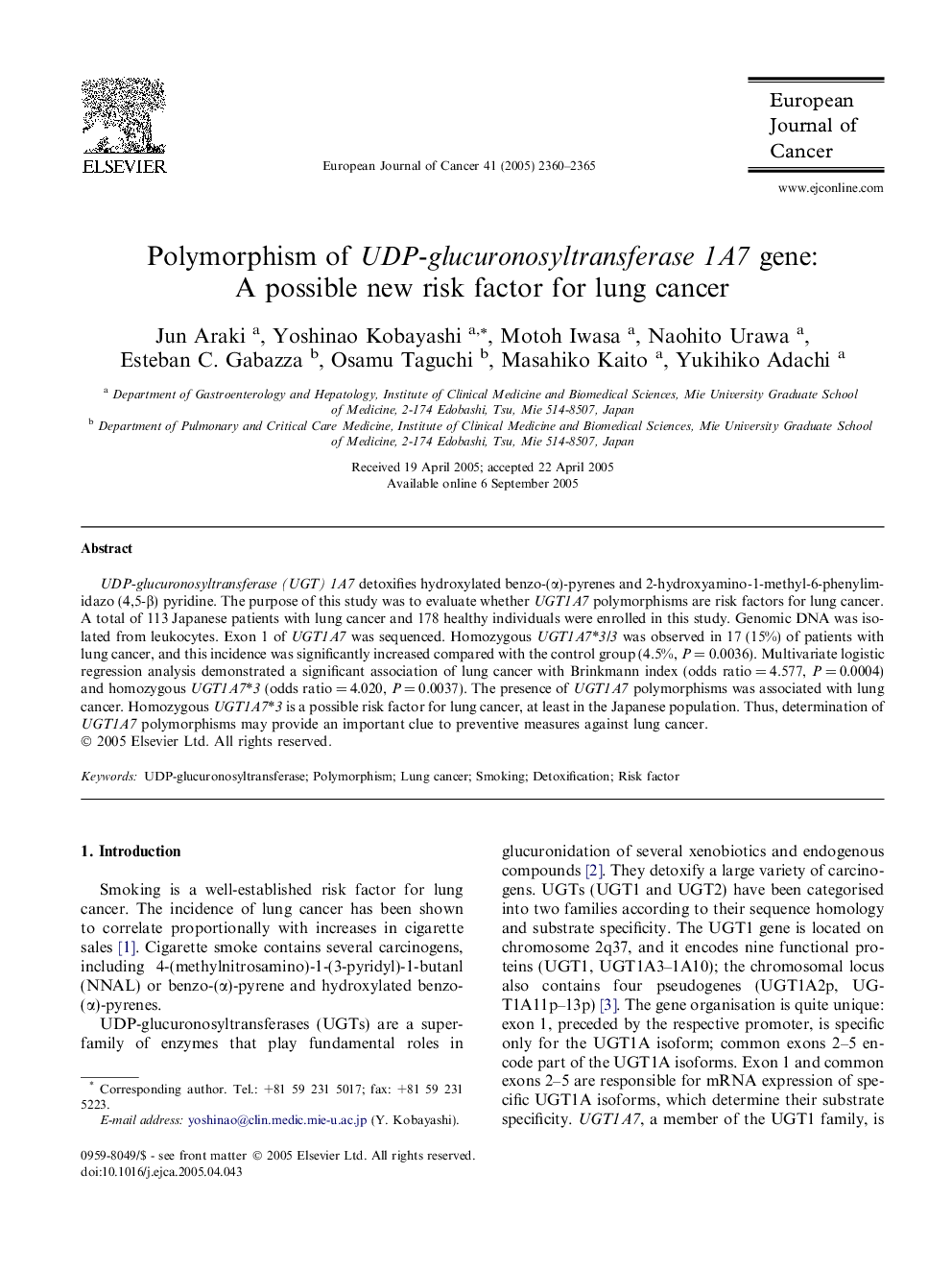| Article ID | Journal | Published Year | Pages | File Type |
|---|---|---|---|---|
| 2126603 | European Journal of Cancer | 2005 | 6 Pages |
UDP-glucuronosyltransferase (UGT) 1A7 detoxifies hydroxylated benzo-(α)-pyrenes and 2-hydroxyamino-1-methyl-6-phenylimidazo (4,5-β) pyridine. The purpose of this study was to evaluate whether UGT1A7 polymorphisms are risk factors for lung cancer. A total of 113 Japanese patients with lung cancer and 178 healthy individuals were enrolled in this study. Genomic DNA was isolated from leukocytes. Exon 1 of UGT1A7 was sequenced. Homozygous UGT1A7*3/3 was observed in 17 (15%) of patients with lung cancer, and this incidence was significantly increased compared with the control group (4.5%, P = 0.0036). Multivariate logistic regression analysis demonstrated a significant association of lung cancer with Brinkmann index (odds ratio = 4.577, P = 0.0004) and homozygous UGT1A7*3 (odds ratio = 4.020, P = 0.0037). The presence of UGT1A7 polymorphisms was associated with lung cancer. Homozygous UGT1A7*3 is a possible risk factor for lung cancer, at least in the Japanese population. Thus, determination of UGT1A7 polymorphisms may provide an important clue to preventive measures against lung cancer.
